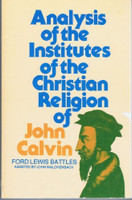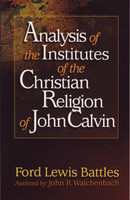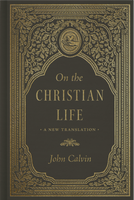At the age of twenty-six, Calvin published several revisions of his Institutes of the Christian Religion, a seminal work in Christian theology that altered the course of Western history and that is still read by theological students today. It was published in Latin in 1536 and in his native French in 1541, with the definitive editions appearing in 1559 (Latin) and in 1560 (French). The book was written as an introductory textbook on the Protestant faith for those with some learning already and covered a broad range of theological topics from the doctrines of church and sacraments to justification by faith alone. It vigorously attacked the teachings of those Calvin considered unorthodox, particularly Roman Catholicism, to which Calvin says he had been “strongly devoted” before his conversion to Protestantism. The over-arching theme of the book—and Calvin’s greatest theological legacy—is the idea of God’s total sovereignty, particularly in salvation and election.
Author John Calvin (1509-1564) the French theologian and reformer was persecuted as a protestant. As a result, he traveled from place to place. In 1534 at Angouleme he began the work of systematizing protestant thought in the Institutes of the Christian Religion, one of the most influential theological works of all time.






